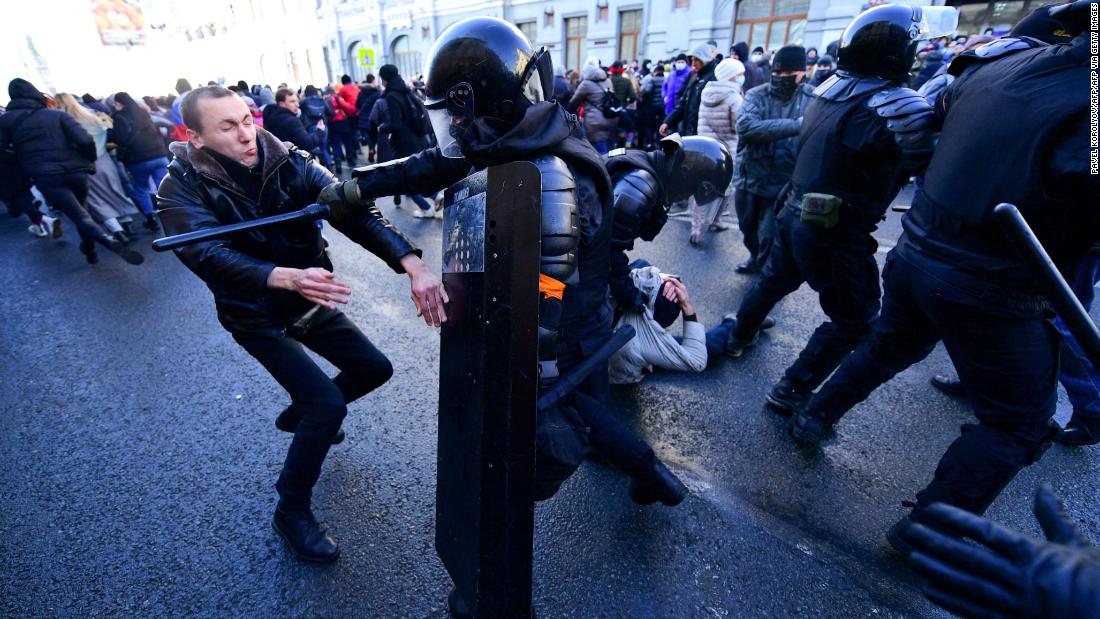The demonstrations began in the city of Vladivostok, in the far east of Russia, and spread to the west as the day progressed. Videos posted on social media showed crowds gathered in Vladivostok and in several cities in Siberia and central Russia.
A video showed a small protest in the city of Yakutsk, where temperatures dropped to -53 degrees Celsius (-63 Fahrenheit) on Saturday.
The demonstrations did not receive official government authorization and the authorities warned people not to attend.
Several Navalny allies were arrested this week for inciting protests, including their spokesman Kira Yarmysh, the Anti-Corruption investigator Georgy Alburov and opposition activist Lyubov Sobol.
The coordinator of Navalny’s Moscow office, Oleg Stepanov, was arrested on Saturday, according to a tweet from Navalny’s team in Moscow. A protest in the Russian capital was scheduled to start at 2 pm local time (6 am ET).
Russia’s Ministry of Foreign Affairs has accused the United States of encouraging protests after the US Embassy in Russia posted an alert on its website advising American citizens to avoid the demonstrations.
In a tweet posted on Saturday, the ministry said that posting information about the rallies was “in line with Washington’s provocative policy of encouraging protests in countries whose governments are seen by the United States as undesirable”.
Under Russian law, an official appeal for approval of a protest must be made to local authorities at least 10 days before the event. Navalny was arrested less than a week ago, so organizers did not have enough time to appeal.
The Russian Internet regulator said on Thursday that it plans to fine major social networks, including Twitter, Facebook and TikTok, for “disclosing information prohibited by law and designed to attract minors to participate in unauthorized public events”.
CNN’s Fred Pleitgen, Zahra Ullah and Anna Chernova in Moscow contributed to the report.
